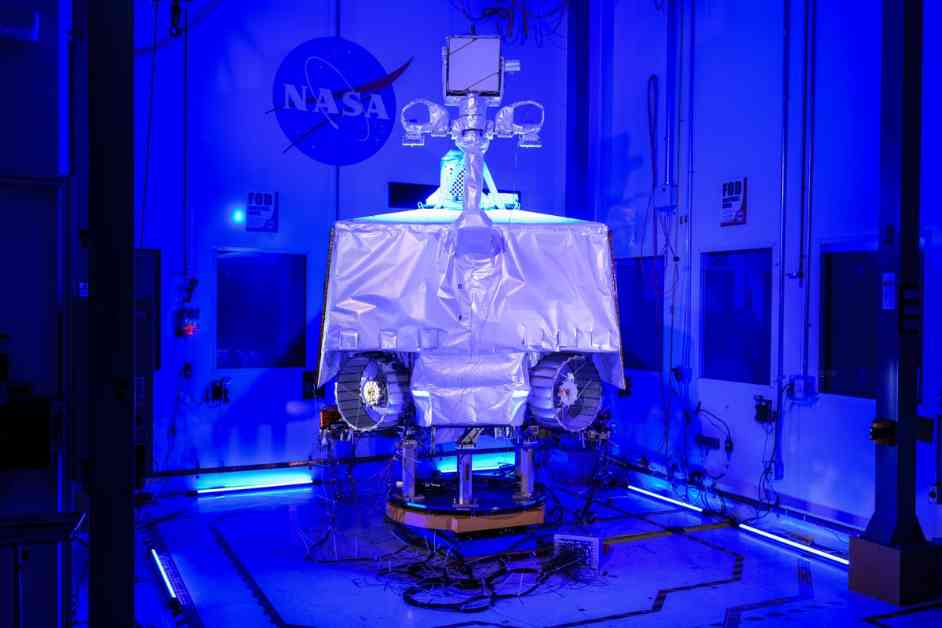In early June, NASA engineers were excited to unveil VIPER, a golf cart-sized rover designed to explore the moon’s south pole in search of water ice. The $450 million project was seen as crucial for advancing lunar science and supporting efforts to harvest ice for air, water, and fuel. However, NASA recently announced the cancellation of the VIPER mission due to budget constraints, sparking disappointment among scientists.
For over two decades, data collected from lunar orbit has suggested the presence of water ice near the moon’s poles. VIPER was intended to provide more detailed information by drilling into the lunar soil to assess the ice content. The rover was also designed to move across the moon’s surface to study variations in ice distribution.
The decision to cancel VIPER was primarily driven by budgetary concerns, as NASA faces a billion-dollar hole in its science budget. Additionally, technical difficulties with the Astrobotic-built lunar lander, Griffin, also played a role in the mission’s downfall. Despite efforts to secure alternative funding or partnerships to rescue the project, time is running out for VIPER to fly to the moon.
NASA’s decision to cancel VIPER has raised concerns among scientists about China’s growing dominance in lunar exploration. China’s ambitious moon program has made significant progress, with plans to launch missions to the moon’s south pole to search for water ice. Some U.S. scientists worry that without VIPER, China may take the lead in lunar resource prospecting.
While there is still a slim chance that VIPER could fly onboard Griffin with the help of international partners or private companies, the window of opportunity is closing fast. NASA has called for proposals to take over the mission at no extra cost to the U.S. government, but time is running out to secure a viable solution.
In light of VIPER’s cancellation, scientists are urging Congress to reconsider and support the mission to ensure the U.S. remains competitive in lunar exploration. With China making rapid progress in its moon program, the race to study and utilize lunar resources is more urgent than ever. NASA’s decision to cancel VIPER underscores the challenges and complexities of space exploration in an era of tight budgets and technical uncertainties.






